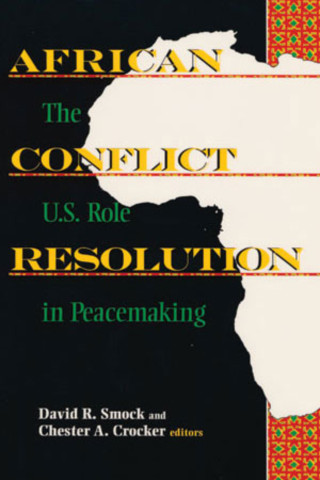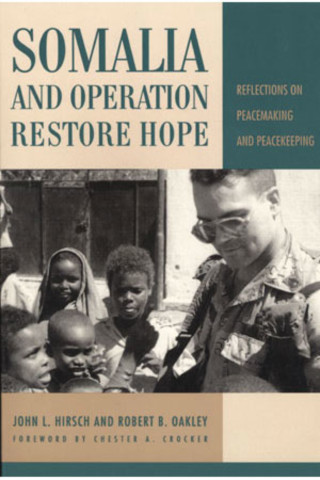Chester A. Crocker
Chester A. Crocker is the James R. Schlesinger Professor of Strategic Studies at Georgetown University and a distinguished fellow at the Centre for International Governance Innnovation (CIGI). His teaching and research focus on conflict management and regional security issues. He served as chairman of the board of the United States Institute of Peace (1992-2004) and as a board member for many years thereafter. From 1981-1989, he was U.S. assistant secretary of state for African affairs. As such, he was the principal diplomatic architect and mediator in the prolonged negotiations among Angola, Cuba, and South Africa that led to Namibia’s transition to independence, and to the withdrawal of Cuban forces from Angola. Dr. Crocker served as a staff officer at the National Security Council (1970-72) where he worked on Middle East, Indian Ocean, and African issues and director of African studies at the Center for Strategic and International Studies (1976-80). He serves on the boards Universal Corporation, Inc., a leading independent trading company in tobacco and agricultural products; Good Governance Group Ltd, a business intelligence advisory service; and Bell Pottinger USA, a communications and public relations firm. Dr. Crocker is a founding member of the Global Leadership Foundation, the Africa-based Housing for HIV Foundation and member of the Independent Advisory Board of the World Bank. Dr. Crocker is the author of High Noon in Southern Africa: Making Peace in a Rough Neighborhood (1993), co-author (with Fen Osler Hampson and Pamela Aall) of Taming Intractable Conflicts: Mediation in the Hardest Cases (2004), and coeditor of Leashing the Dogs of War: Conflict Management in a Divided World (2007), Grasping the Nettle: Analyzing Cases of Intractable Conflict (2005); Turbulent Peace: The Challenges of Managing International Conflict (2001); and Herding Cats: Multiparty Mediation in a Complex World (1999).
Author's Books
When Somali gunmen killed 18 American Rangers in Mogadishu on October 3, 1993, public and congressional support for the American and UN missions in Somalia dropped dramatically. In fact, U.S. policymakers began to rethink commitments to peacemaking in Africa in general.
Nevertheless, many African and U.S. specialists on African affairs--including the contributors to this volume--strongly urge the United States to continue active engagement with Africa and creatively support African initiatives to manage and resolve their own conflicts.
This book brings together nine specialists from Africa and the United States--including former diplomats, academics, policymakers, and policy analysts--to assess ways to enhance the U.S. contribution to African efforts to prevent, manage, and resolve violent conflicts.
The contributors conclude that U.S. initiatives can take a variety of forms and need not involve American troops. There is a new African willingness to assume responsibility, but African instutional and fanancial capabilities are severely limited. African initiatives therefore have little chance of success without significant and sustained international, and particularly American involvement.
The Los Angeles Times describes this volume as one of the two most important postmortems written since the United Nations dismantled its troubled and lamented mission to Somalia.
“Somalia” has become a symbol for the unacceptable costs of humanitarian intervention, for the type of foreign involvement that should be avoided. But the authors of this timely book, themselves key participants in the U.S.-led operation there, argue that substantial good was done—the tide of famine was stayed, hundreds of thousands of lives saved, and steps toward political reconciliation begun. Despite the recent renewal of political violence, the humanitarian situation remains stable.
In launching Operation Restore Hope, the multinational coalition faced a complex, tense, and rapidly unfolding situation. The authors detail how the carefully limited mission achieved its goals, including mutual understanding with the Somalis, by combining political, military, and humanitarian actions. But the authors also describe how different U.S. and UN concepts of the mission and subsequent changes in the mission’s scope led almost inevitably to confrontation.


